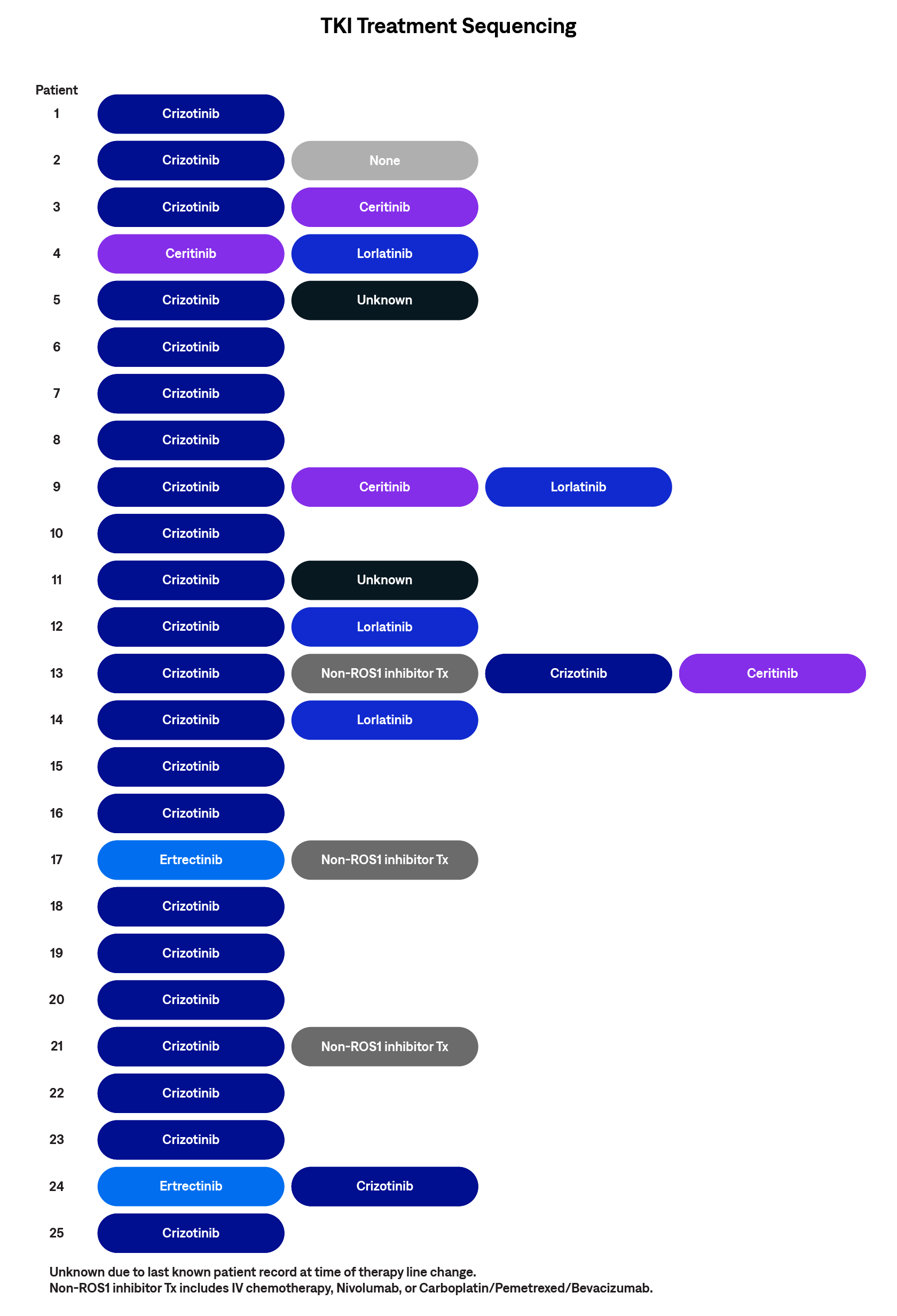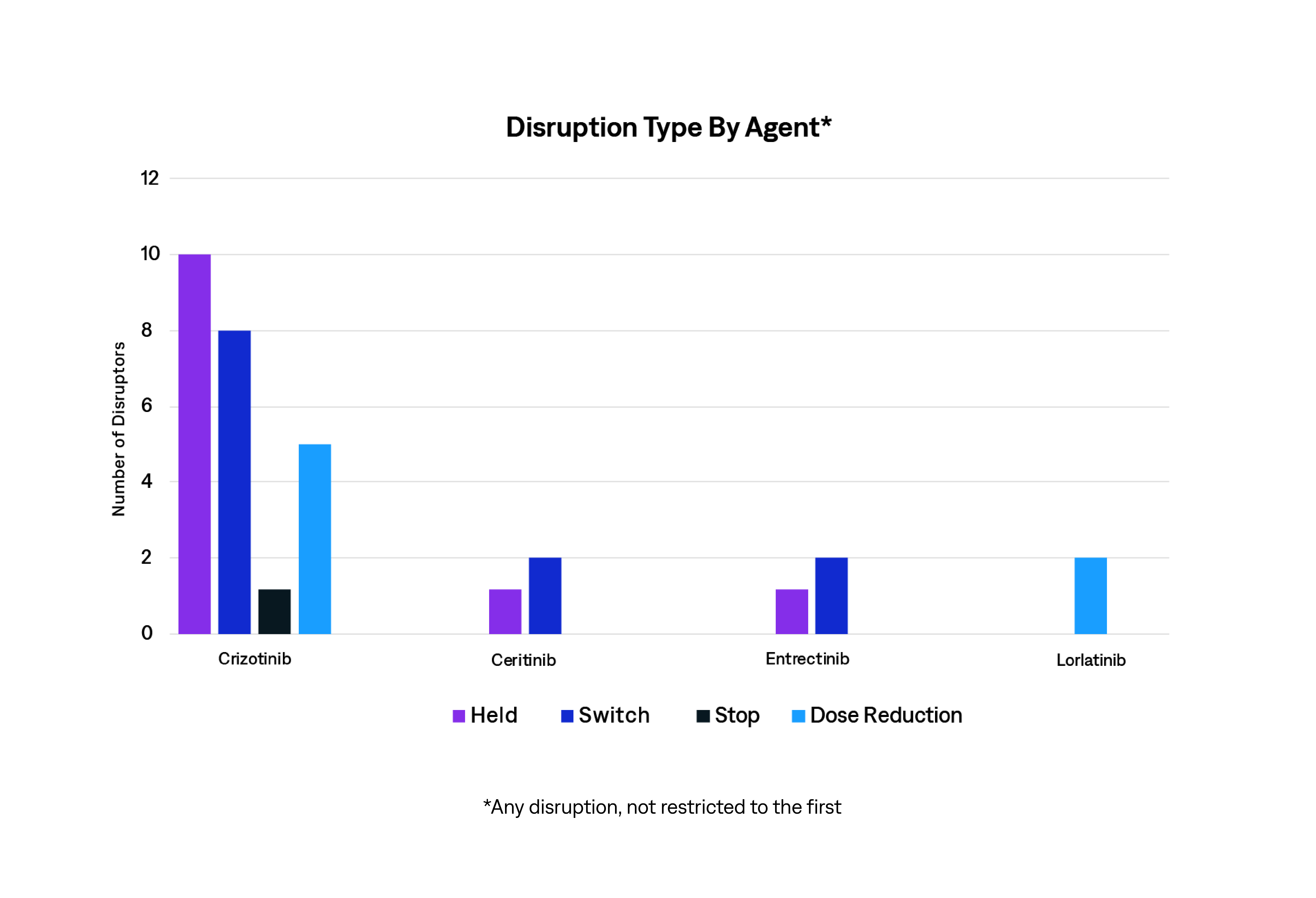
This poster was originally presented at ISPOR Europe, November 6-9, 2022, in Vienna, Austria.
Authors: Andrew Shim, A. Singhania, Dave Iwanyckyj, F. Otalora, B. Morrison, SW Wade
Affiliations: Turning Point Therapeutics, San Diego, CA, USA; Amplity, Bucks, UK; Wade Outcomes Research and Consulting, Salt Lake City, UT, USA
This exploratory analysis examined real-world, routine care treatment patterns and potential limitations using US physician narratives of patient encounters. Specific objectives were to describe treatment patterns in patients with ROS1+ non-small cell lung cancer (NSCLC) who received a TKI; potential limitations of TKI including, reasons for treatment disruption; development of treatment resistance, and treatment response


Learn how our AI-powered platform can work for you.